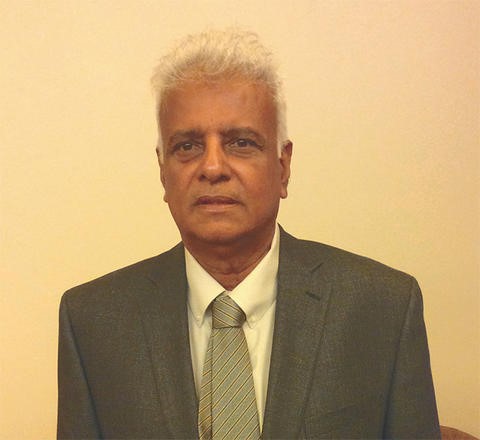(Trinidad Guardian) President of the Petroleum Dealers’ Association of T&T, Robindranath Naraynsingh, yesterday said the country’s 170 gas stations were on the verge of collapse due to poor profitability margins from the sale of fuel.
Saying the gas stations service more than half the population on a daily basis, Naraynsingh admitted their industry had been plunged into a crisis. He could not say what percentage of the gas stations were likely to close their doors but said a dark cloud was hanging over their heads and “an impending doom was surely coming if this situation persists.”
Delivering the feature address to a small group of dealers at a special general meeting at Kam-po Restaurant, Chaguanas, Naraynsingh pleaded with Energy Minister Nicole Olivierre to meet with them before the situation worsened and jobs were lost.
The association also threatened to seek judicial review against Government’s proposal to award retail marketing licences in the landowner’s name rather than the operator.
“Our Government came in and promised a rising tide of prosperity. We have instead been plunged into a crisis that is now beginning to affect all present here today. Our industry is on the brink of destruction. We are not the only ones who are feeling the pinch of a reduced profit margin, many of us are near insolvency,” Naraynsingh said.
He said businesses were being lost while gas station dealers were being shattered which showed that their future and livelihoods were in deep trouble.
“Today, I say to you the challenges we face are real. They are serious and there are many. We deal with a lot of money but our margins are very small,” he added.

The meeting was called at a time when countries across the globe are experiencing dynamic changes in the petroleum industry which were now also affecting the retail sector in T&T. The retail sector comprises retailers, distributors, dealers, franchisees and operators.
Of the 170 dealers, Naraynsingh said 40 stations operate convenient stores which help supplement their incomes and help absorb the losses incurred at the pumps.
There are five stations in Tobago and collectively they employ approximately 2,000 workers nationwide. The dealers buy fuel daily from National Petroleum and Unipet who are wholesalers.
In the last two years, Naraynsingh said over 20 gas stations dealers had surrendered their keys to NP because they were operating at a loss.
Since November 2005, Naraynsingh said the price of liquid petroleum (fuel) had not increased for dealers while the cost of living soared across the board.
“We are experiencing a profitability decline with two recent increases in the price of super gasoline and diesel, totalling 30 per cent. Our gross profit on super has gone from 6.7 per cent to 5.6 per cent, while diesel from 8.7 per cent to 7.3 per cent.”
For every litre of fuel sold, Naraynsingh said dealers make 17 cents on super, 17 cents on premium and 12 cents on diesel.
“Every time the price of fuel goes up that margin remains the same. What happens is that our gross profit keeps going down. We need to have that margin increased from 17 cents to 25 cents for us to make a profit.
“For every $1 that is spent at the pump, two cents go to the dealer. The rest goes to the Government and NP. We are in a fixed price business. If we don’t get an increase we are looking at a collapse of this industry,” Naraynsingh warned.
With little profit margins, Naraynsingh said dealers have to pay staff, taxes, electricity and water rates, telephone, security and maintain their businesses. He said what was crippling many businesses was the 2016 imposition of a 200 per cent Green Levy and Business Levy Tax.
“Many of us now have our backs against a wall,” he said
Naraynsingh said dealers should have been considered by the Finance Minister for a reduction in both taxes.
